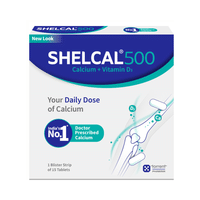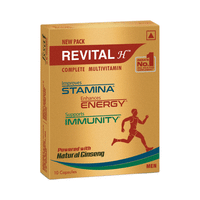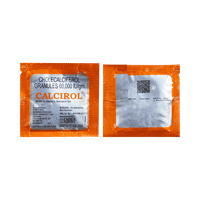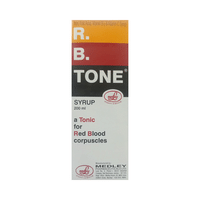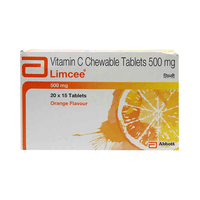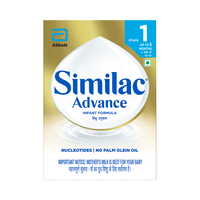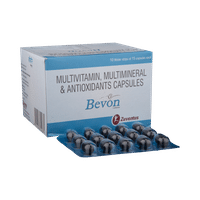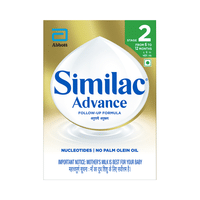Carnione M Tablet

Rs.580for 1 strip(s) (10 tablets each)
food interaction for Carnione M
alcohol interaction for Carnione M
pregnancy interaction for Carnione M
lactation interaction for Carnione M
food
alcohol
pregnancy
lactation
Carnione M Tablet may be taken with or without food, but it is better to take it at a fixed time.
None
None
CAUTION
It is not known whether it is safe to consume alcohol with Carnione M Tablet. Please consult your doctor.
CONSULT YOUR DOCTOR
Information regarding the use of Carnione M Tablet during pregnancy is not available. Please consult your doctor.
CONSULT YOUR DOCTOR
Information regarding the use of Carnione M Tablet during breastfeeding is not available. Please consult your doctor.
CONSULT YOUR DOCTOR
SALT INFORMATION FOR Carnione M
Coenzyme Q10(100mg)
Uses
Coenzyme Q10 is used for nutritional deficiencies.
How it works
Coenzyme Q10 is a vitamin-like substance that provides essential nutrients.
Common side effects
Nausea, Diarrhea, Heartburn, Loss of appetite
Docosahexanoic Acid(60mg)
Uses
Docosahexanoic Acid is used for nutritional deficiencies.
How it works
Docosahexaenoic acid (DHA) is a long-chain unsaturated fatty acid that is a member of the omega-3 family of fatty acids. DHA plays an important role in brain and retinal development in infants. It is also the most abundant unsaturated fatty acid found in the brain.
Common side effects
Gastrointestinal discomfort, Burping, Vomiting, Nausea, Constipation, Diarrhea
Eicosapentaenoic Acid(90mg)
Uses
Eicosapentaenoic Acid is used for nutritional deficiencies.
How it works
The omega-3 fatty acids eicosapentaenoic acid is long-chain n-3 polyunsaturated fatty acids, which compete with arachidonic acid for inclusion in cyclo-oxygenase and lipoxygenase pathways. It's actions include hypolipidaemic action (especially a reduction in plasma triglycerides) by reducing very-low-density lipoproteins; anti-inflammatory action, attributed to effects on leukotriene synthesis; and antiplatelet effect, attributed to effects on prostanoid synthesis, which promote vasodilatation, reduction in platelet aggregation, increased bleeding time and decreased platelet counts.
Common side effects
Nausea, Gastrointestinal discomfort, Burping, Vomiting, Constipation, Diarrhea
Folic Acid(0.75mg)
Uses
Folic Acid is used in the treatment of anemia due to folic acid deficiency.
How it works
Folic Acid is a form of vitamin B. It plays a vital role in the formation of red blood cells, which carry oxygen throughout the body. It is also essential in pregnancy due to its role in the development of the unborn baby's brain and spinal cord.
Common side effects
No common side effects seen
L-Arginine(50mg)
Uses
L-Arginine is used in the treatment of nutritional deficiencies.
How it works
L-Arginine contains an amino acid, L-arginine. It works by improving blood flow to the muscles by widening the blood vessels. This improves growth of muscles.
Common side effects
Bloating, Abdominal pain, Allergy, Decreased blood pressure, Diarrhea, Gout, Airway inflammation, Aggravation of asthma
Levo-carnitine(500mg)
Uses
Levo-carnitine is used in the treatment of carnitine deficiency.
How it works
Levocarnitine belongs to the class of medications called as amino acid derivative. It works by improving the low levels of carnitine in the body.
Common side effects
Palpitations, Paresthesia (tingling or pricking sensation), Anemia (low number of red blood cells), Headache, Increased calcium level in blood, High blood pressure, Vertigo, Gastrointestinal disorder, Weakness, Back pain, Chest pain, Fever, Injection site reaction, Tachycardia, Arrhythmia (irregular heartbeats), Dark colored stool, Electrolyte imbalance, Leg cramps, Dizziness, Respiratory disorder, Eye disorder, Taste change, Urinary tract infection
Lycopene(2500mcg)
Uses
Lycopene is used in nutritional deficiencies.
How it works
Lycopene acts an antioxidant by fighting free radicals in the body. Due to its antioxidant property, it reduces the risk of cancer and cardiovascular disease.
Common side effects
Nausea, Diarrhea, Indigestion, Vomiting
Methylcobalamin(1500mcg)
Uses
Methylcobalamin is used in vitamin B12 deficiency.
How it works
Methylcobalamin is a form of vitamin B12 that restores its level in the body thereby helping in treating certain anemias and nerve problems.
Common side effects
Decreased appetite, Diarrhea, Nausea, Rash
Selenium(50mcg)
Uses
Selenium is used in the treatment of nutritional deficiencies.
How it works
Selenium provides essential nutrients.
Common side effects
Nervous system disorder, Fatigue, Garlic breath odor, Irritation, Rash, Hair loss, Nail disorder
Zinc Gluconate(10mg)
Uses
Zinc Gluconate is used in the treatment of nutritional deficiencies.
How it works
Zinc Gluconate is a mineral salt (zinc salt form of gluconic acid). It helps to fulfill zinc deficiency in the body to regulate the proper functioning and development of the organs.
Common side effects
Abdominal pain, Dehydration, Diarrhea, Dizziness, Stomach inflammation, Headache, Indigestion, Nausea, Restlessness, Vomiting
SUBSTITUTES FOR Carnione M
No substitutes foundExpert advice FOR Carnione M
- Always consult your doctor before taking CoQ10 as a supplementary therapy.
- Precautions must be taken if you are suffering for liver problems.
- Diabetic patients on CoQ10 supplementation must closely monitor their blood sugar levels for sudden drop is sugar levels.
- Patients suffering from high blood pressure must also use CoQ10 with caution and monitor their blood pressure regularly.
Frequently asked questions FOR Carnione M
Coenzyme Q10
Q. Who should take Coenzyme Q10?
You should take Coenzyme Q10 only if doctor has advised you. Coenzyme Q10 has a beneficial role when taken with other medicines in patients with heart failure, angina, high blood pressure, Parkinson’s disease, and migraine. It may also be advised in patients with Coenzyme Q10 deficiency, HIV/AIDS or in patients taking adriamycin. Coenzyme Q10 is an additional therapy to the prescribed treatment. Do not substitute Coenzyme Q10 for actual treatment required for these particular diseases.
Q. Is Coenzyme Q10 bad for the liver?
Coenzyme Q10 may cause an increase in liver enzymes. Therefore, if you have liver disease, inform your doctor before you start taking this medicine. Other common side effects of Coenzyme Q10 include sleeplessness, rashes, nausea, upper abdominal pain, dizziness, sensitivity to light, irritability, headaches, heartburn, and fatigue.
Q. Can Coenzyme Q10 cause sleeplessness?
Yes, Coenzyme Q10 may cause sleeplessness, however, it does not affect everyone. Consult your doctor if you have difficulty sleeping after taking Coenzyme Q10.
Docosahexanoic Acid
Eicosapentaenoic Acid
Folic Acid
Q. Is it ok to take Folic Acid when not pregnant?
Usually, folic acid requirements are met from the diet and therefore additional supplements are not required. In general, Folic Acid is recommended only when you have a deficiency of folic acid. However, Folic Acid is advised to women who are pregnant and who want to conceive. The medicine should be taken at least 4 weeks before pregnancy and should continue its use up to 3 months of pregnancy. Consult your doctor if not sure.
Q. Can Folic Acid cause weight gain?
Animal studies on Folic Acid suggest that taking the medicine in excess along with a high-fat diet may lead to weight gain and fat accumulation. But this weight gain was not evident when taken along with a normal or low-fat diet, even with excess Folic Acid. In humans, similar studies have not been conducted and therefore knowledge regarding weight gain is lacking. Therefore, if you are on Folic Acid eat a low-fat meal to be on the safer side.
Q. How long does Folic Acid take to work?
Folic Acid usually starts working within a few hours of taking it. If you are taking it for iron deficiency anemia, you may start feeling better after a few weeks of taking it. In case you are taking it during pregnancy, you may not notice any difference but this does not mean that the dose is not working. Continue taking Folic Acid for the duration recommended by your doctor.
L-Arginine
Levo-carnitine
Q. When can a carnitine deficiency occur?
Carnitine deficiency may be of two types, primary and secondary. Primary is genetic and may show symptoms by five years of age. Whereas, secondary may occur due to certain disorders like kidney problems (chronic kidney failure) and use of antibiotics that reduces its absorption and increases its excretion.
Q. Does warfarin have any effect on Levo-carnitine?
In some patients, warfarin when taken along with Levo-carnitine may increase the time required for the formation of blood clot. Hence, before starting Levo-carnitine, inform your doctor if you are taking warfarin.
Q. Is Levo-carnitine a steroid?
Levo-carnitine is not a steroid. It contains Levo-carnitine which is a type of protein (made from the amino acids lysine and methionine). It helps in transporting fats to the cells, where fats get metabolized in order to produce energy. It is used to treat primary and secondary Levo-carnitine deficiency.
Lycopene
Methylcobalamin
Q. What is Methylcobalamin?
Methylcobalamin contains vitamin B12. Vitamin B12 is an essential nutrient which is required by the body to make red blood cells and maintain a healthy nervous system. It is also important for releasing energy from food and using vitamin B11 (folic acid).
Q. Why can’t I get sufficient vitamin B12 from my diet?
You can get vitamin B12 from sources like meat, fish, eggs and dairy products. While people who are vegetarian or vegan may not get Vitamin B12 as it is not found naturally in foods such as fruits, vegetables and grains. Therefore, deficiency of Vitamin B12 is usually noticed in vegetarians or vegans.
Q. What happens if I have vitamin B12 deficiency?
Deficiency of vitamin B12 may cause tiredness, weakness, constipation, loss of appetite, weight loss and megaloblastic anemia (a condition when red blood cells become larger in size than normal). It may also lead to nerve problems such as numbness and tingling in the hands and feet. Other symptoms of vitamin B12 deficiency may include problems with balance, depression, confusion, dementia, poor memory and soreness of the mouth or tongue.
Selenium
Q. Can I take selenium with synthyroid/ levothyroxine/ armour thyroid/ thyroxin?
There are no known interactions of selenium with any thyroid preparations such as synthyroid/ levothyroxine/ armour thyroid/ thyroxin. Selenium which is a part of selenoprotein (iodothyronine deiodinases) is essential for the conversion of thyroxine (T4) to the biologically active thyroid hormone triiodothyronine (T3) thereby it is important in thyroid hormone functioning
Q. Can I take selenium with calcium?
There are no known interactions of selenium with minerals such as calcium
Q. Can I take selenium with other vitamins/ vitamin C/ zinc?
Yes. Selenium (gluthathione peroxidase) has been reported to support the activity of vitamin E in limiting the oxidation of lipids (fats). Selenium also interacts with zinc (it affects cellular redox status). Selenium can, however, be taken with vitamins/ zinc; the combinations are available as a part of multivitamin preparation













